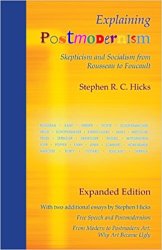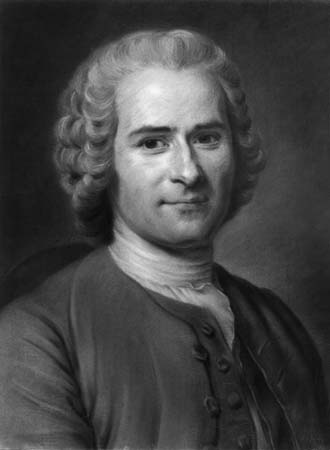Counter-Enlightenment thinker Jean-Jacques Rousseau claimed that in moral society,
one “coalesces with all, in this each of us puts in common his person and his whole power under the supreme direction of society’s leaders.”
And:
A “citizen should render to the state all the services he can as soon as the sovereign demands them.”
Further:
“whoever refuses to obey the general will will be forced to do so by the entire body; this means merely that he will be forced to be free.”
Yet further:
“The state … ought to have a universal compulsory force to move and arrange each part in the manner best suited to the whole.” And if the leaders of the state say to the citizen, “‘it is expedient for the state that you should die,’ he should die.”
 For more on the implications of Rousseau’s philosophy for postmodernism, see pp 107-ff of my Explaining Postmodernism: Skepticism from Rousseau to Foucault.
For more on the implications of Rousseau’s philosophy for postmodernism, see pp 107-ff of my Explaining Postmodernism: Skepticism from Rousseau to Foucault.
Information about other editions and translations is available at this dedicated page.
